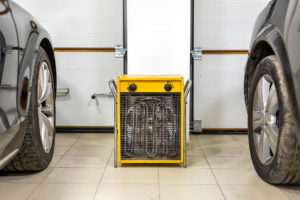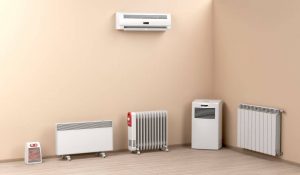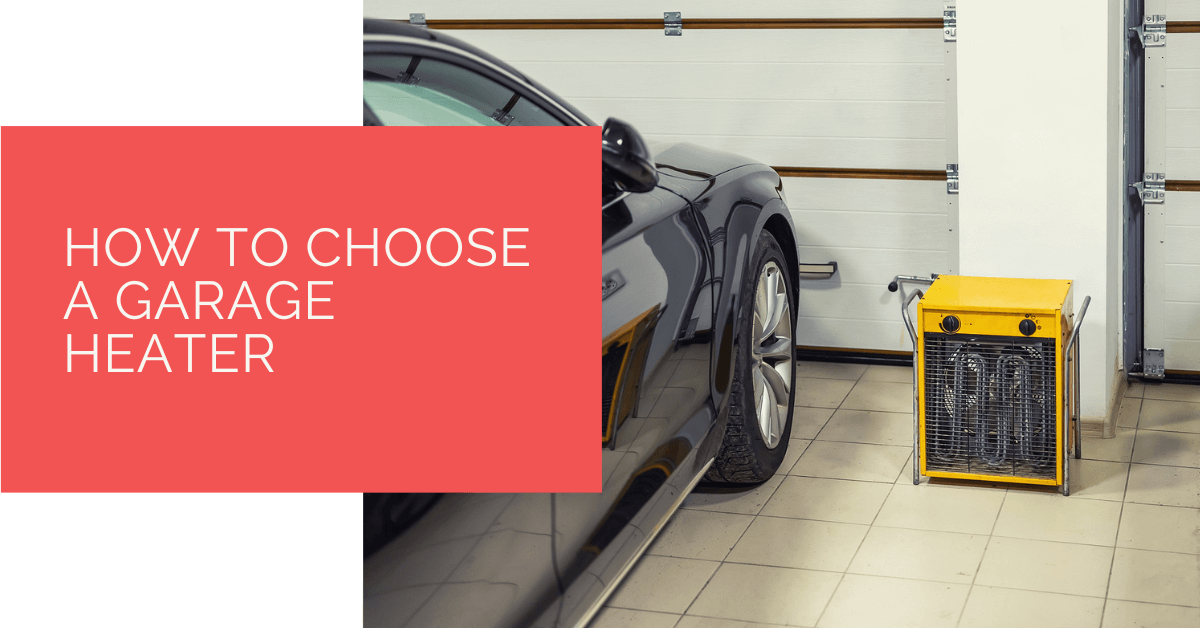If your idea of relaxation and fun is spending hours fixing your truck in your garage, then ensuring the space is comfortable throughout the year makes complete sense.
There is a range of garage heaters that you can choose from depending on your requirements, location and affordability.
Contents
Key Takeaways
- Consider the location within your garage and whether you need a portable or mounted heater for efficient heating.
- Choose the right installation type (hardwired or plug-in) based on your garage’s purpose and electrical setup.
- Select a garage heater based on your garage’s size, capacity, and the availability of a suitable heat source, keeping safety features in mind.
Factors to Consider While Choosing a Garage Heater
Location
Ideally, heaters are set in those parts of the garage that require maximum attention. In most cases, that is the central portion of the garage.
Most people tend to use that garage as a workshop or a space for their hobby. In such cases, place the heater in a direction that overlooks the working space. Selecting a heater that allows you to control the direction of heat towards a preferred location is advisable.
When selecting the location within the garage, you can also choose between a portable heater or a mounted one. The scaled version will require some special hardware to screw it in securely.
Installation
There are two types of installation when it comes to garage heaters. The first one is a hardwired heater (220V or 240V). The alternative option is a standard header that is plugged into any existing outlet (110V) with the help of a power cord.
If your garage doubles as a workshop with a range of tools and hardware, it is advisable to opt for a hardwired heater. Installing a heavy-duty heater will require a professional electrician to hardwire it with its switchboard and circuit. This option will allow you to use other tools without the concern of blowing a fuse.
On the contrary, connect portable heaters to an existing outlet without seeking any professional help. If your garage is fitted with multiple outlets, this is a viable option. It is also beneficial in the long run if you want to move it around the garage space while you work.

Size of The Garage Heater
Two main factors play a crucial role in deciding the size of your garage heater. The first one is the size of your garage, while the second one depends on the heater’s capacity.
Based on the BTU calculation, you can measure the output required by the heater to warm your garage space.
Heat Source Availability in The Garage
The most common items stored in the garage is usually paint or wood. Due to this factor, it is better to go for natural gas heater or electric garage heaters.
In addition to being efficient and safe for your space, it is also very cost-efficient and does not rake up your utility bills. In the absence of access to natural gas, the next best option is an electric heater. It is the least intrusive option as it can be wall mounted, thereby creating more work space in the garage.
Safety Features of Gas Heaters
Safety is always the primary concern for installing heaters in your living space. Various types of heaters are inbuilt with multiple safety features that help prevent an accident. Let’s have a look at some of them.
- Look for models that have heavy duty housing designs. This helps to avoid accidental fires.
- Identify its ability to reduce the risk of accidental burns. The heaters must be designed in such a way that the hardware parts leading to burns are not exposed.
- Go for wall mounted heaters if you have kids and pets at home. This will help avoid any accidental injuries.
- Ensure that they have adjustable levels and various heat settings, enabling you to control and channel the heat with the help of a control knob.
- Get models with overheat protection that will automatically turn off the heater when it is overheated. This will help avoid overheating of the device, thereby providing added safety. It also ensures that the heat levels are in good condition for a more extended period.
- Most garage heaters are also enabled with a tip over switch. If the heater is pushed over accidentally, the tip over switch automatically shuts off the device, preventing any damage or accident.

Types of Garage Heaters
Natural Gas Heaters
This is one of the most efficient heaters, which provides stable heating throughout. It requires a slightly higher investment when compared to the other options. However, it runs on renewable energy and is a cleaner option.
It is safe to use in a garage as it does not require any form of refuelling or refilling. The device is quiet and facilitates even heating over its operating range. You will need professional assistance to set up natural gas heaters as they must be connected to the natural gas supply line around the house.
This model helps save money in the long run as it does not add to the bill. Natural gas heaters also require minimal maintenance as they are not fitted with motors or fan blades. The typical output ranges between 70,000 to 90,000 BTUs per hour.
Electric Heaters
Electric heaters are the most preferred and popular choice for garage heaters. They are electricity powered. They are safe to use in garages as the working does not involve any flammable vapors or substances. They are an expensive option and come with easy installation.
If your garage space is relatively insulated, then an electric heater is the best choice as it helps provide warmth in an area or space of your choice. The typical output ranges between 20,000 and 40,000 BTUs per hour.
Ceramic Heaters
Out of all the options available, ceramic heaters are the most expensive ones. On the other hand, they are also the safest option as no flammable liquid fuel is used in its functioning. They do not emit any fumes or gases, making them the better choice. Ceramic is a sturdy material that lends to the heater’s durability.
Even if the device is tipped over or dropped by mistake, the chances of extreme damage are less as ceramic is less likely to shatter. The typical output is close to 30,000 BTUs per hour.
Quartz Heaters
Quartz is a mineral that does not emit any harmful gases or fumes, making quartz heaters the most efficient option of the lot. If you are looking for a durable heater, this could be your preferred choice.
The energy efficiency of quartz heaters is higher than all the other types of garage heaters. This enables you to heat your garage space more quickly and efficiently. They require very minimal maintenance since they have no movable parts or motors. The typical output is close to 40,000 BTUs per hour.
Heat Pump Source: Reliable Heating and Cooling Solutions
At Heat Pump Source, we take pride in our unwavering commitment to serving the UK with top-tier HVAC solutions. From the efficiency of heat pumps and the cool relief of air conditioning to the warmth of boilers, radiators, and underfloor heating, our dedicated team is always at the forefront of innovation. We understand the unique needs of every household and business, and we strive to provide dependable health and cooling products and services that are tailored just for you. Ensuring your comfort and satisfaction is our utmost priority. Whether you have questions, need guidance, or require support, we’re always here to assist. Please don’t hesitate to contact us; we’re eager to be of service.
Conclusion
The different types of heaters each possess their characteristics. Do thorough research and pick the option that suits your needs best. Fitting the right heater in your garage allows you to maximise the use of the garage space.
The amount of time you spend in your garage profoundly impacts the type of heater you wish to install in that space. Irrespective of whether or not you use your garage space regularly, installing a heater will allow you to make use of the complete house throughout the year.
About the Author
At Heat Pump Source, our articles are the product of a collaborative effort among a team of highly skilled HVAC experts. Our dedicated professionals, hailing from diverse backgrounds in heating, ventilation, air conditioning, and refrigeration, contribute their extensive knowledge and experience to every piece of content. This multidisciplinary approach ensures comprehensive coverage. Our commitment is to deliver authoritative, reliable, and tailored advice to meet the unique needs of every household and business across the UK.

